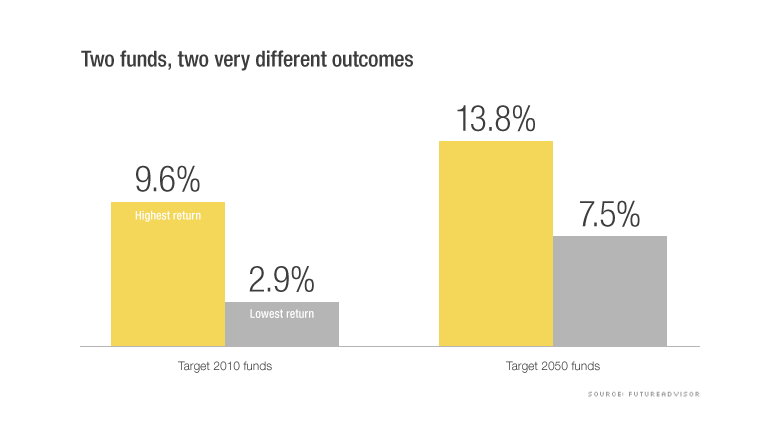The Cost of Financial Advice Are All Fees Created Equal
Post on: 16 Март, 2015 No Comment

by Robin S. Davis, CFP
The amount of money you should pay for any kind of service is one of the big mysteries in life. The financial services industry is one of the biggest fee-for-service industries available to the public, and one of the most diverse in how fees are charged. The million dollar question should be am I paying too much for the results I am getting or am I paying too little and not getting the results I could be getting.
In order to determine if you are paying too much, too little, or just enough, you have to know what kind of investment advisor you are working with. Are you working with a stockbroker or a financial planner? A stockbroker, in most cases, will make buy and sell transactions on your behalf, usually in a brokerage account. A financial planner (a registered investment advisor or certified financial planner for example) generally acts in your best interest in all aspects of the financial relationship.
The next step is to know what services you require in your personal situation. Do you handle most of your own planning and just need someone to run ideas through, or do you require services to coordinate your entire financial plan including your investments, taxes, insurances, retirement income, long-term care and estate planning needs?
Finally, you should know the various differences in how financial advisors charge fees. The most common ways advisors are paid are:
Fees charged as a percentage of your account value. You need to know if you are paying fees on just investment management, or on full-service financial planning along with investment management. The latter will probably cause you to pay higher fees. An annual fee is charged based on the value of the assets at the time of payment. This fee will go up when the assets increase and will go down when the assets decrease. In most cases, the fee is withdrawn from the account on a quarterly basis.
Commissions paid to the advisor from insurance or investment products you buy from them. In this case, a product or investment is recommended that has a commission-based structure as payment to the advisor for their advice. You should be aware that just as a competent financial advisor may recommend these products to help solve your financial issues, financial salesmen may recommend them for the commissions they pay.
Hourly fee rates for financial advice. Fees are charged by the hour in this case and generally you implement the advice yourself or with another advisor. Since this advisor is not benefiting from ongoing fees or commissions, you may get more objective advice, but be aware that this advisor may not have the same liability as the others as they are not actually making the investments they recommend. They also get paid whether you take advantage of their advice or not.
Flat fee for a specific project. This is a way to pay a fee for one specific part of your finances until it is implemented or completed. Examples would be to design an estate plan, create a tax plan or tax harvesting, or create an insurance plan for estate tax purposes.
Annual retainer fee for ongoing financial advice. Once the complexity of your situation is determined, an annual retainer can be quoted depending on the amount of services required. This will usually include a certain number of hours for consultations. Additional work will create additional retainer fees.
It is also possible for a financial professional to offer services utilizing a combination of the above fee structures. This advisor is generally known as a fee-based advisor. Do not confuse this advice with a fee-only advisor, as they can only offer investments on a fee basis. This will hinder their ability to make recommendations of commission-based alternative investments that could possibly lower the risk in your overall portfolio.
When paying fees, you always want to make sure you are getting some kind of value for those fees. Your investment advisor must understand your goals by gathering all your personal and financial information, determining your income needs and your growth potential taking into account your past experience and tolerance for risk. Once they determine what is working in your current plan and what isnt, they can make recommendations on how you should go forward.
Some people feel they should not be paying fees in bear markets when their investments may be decreasing. You should be aware that if your accounts decrease in volatile markets, their fees decrease as well. Most competent, ethical advisors work harder for their clients in down markets and try to be more creative in finding other solutions to help get through the volatility, even if they cant prevent it. They can help you change your investment plan if your risk tolerance changes over time or if a change in your situation warrants changes in your portfolio. Understanding your fees and trusting your advisor are key components of this important long-term relationship.
Robin S. Davis is a Certified Financial Planner, a member of the Financial Planning Association, and is the owner of Davis Wealth Management Group, Inc. in Stuart, Florida. She has been advising retirees since 1984 and has held over 500 public seminars on financial issues. She is the author of the book Who’s Sitting On Your Nest Egg? Why You Need a Financial Advisor and Ten Easy Tests for Finding the Best One. Davis expresses the importance of utilizing a competent financial advisor. For more information, please call (800) 896-5422 or (772) 463-4441, visit www.daviswealth.com. or email: rdavis@daviswealth.com.














